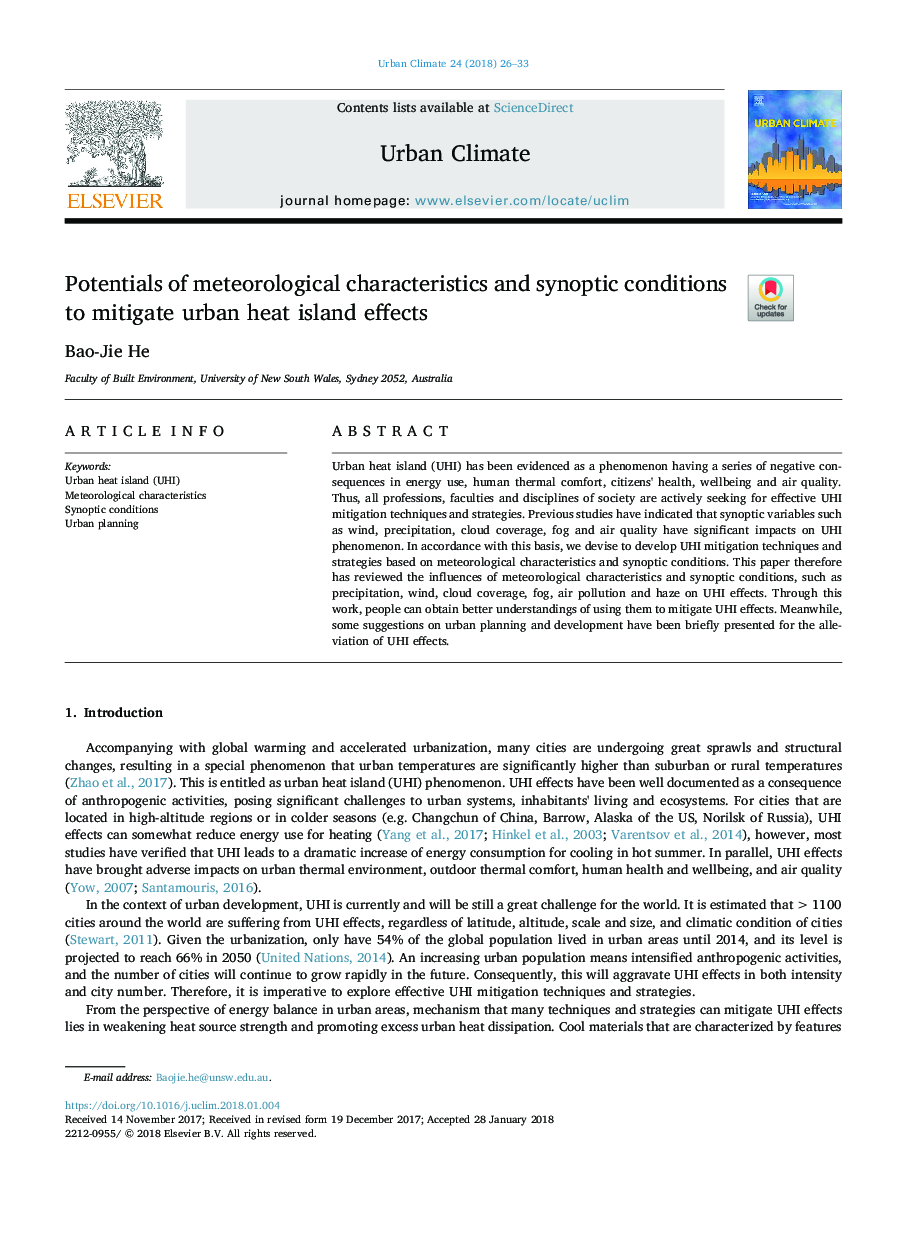| Article ID | Journal | Published Year | Pages | File Type |
|---|---|---|---|---|
| 6576842 | Urban Climate | 2018 | 8 Pages |
Abstract
Urban heat island (UHI) has been evidenced as a phenomenon having a series of negative consequences in energy use, human thermal comfort, citizens' health, wellbeing and air quality. Thus, all professions, faculties and disciplines of society are actively seeking for effective UHI mitigation techniques and strategies. Previous studies have indicated that synoptic variables such as wind, precipitation, cloud coverage, fog and air quality have significant impacts on UHI phenomenon. In accordance with this basis, we devise to develop UHI mitigation techniques and strategies based on meteorological characteristics and synoptic conditions. This paper therefore has reviewed the influences of meteorological characteristics and synoptic conditions, such as precipitation, wind, cloud coverage, fog, air pollution and haze on UHI effects. Through this work, people can obtain better understandings of using them to mitigate UHI effects. Meanwhile, some suggestions on urban planning and development have been briefly presented for the alleviation of UHI effects.
Related Topics
Physical Sciences and Engineering
Earth and Planetary Sciences
Earth and Planetary Sciences (General)
Authors
Bao-Jie He,
